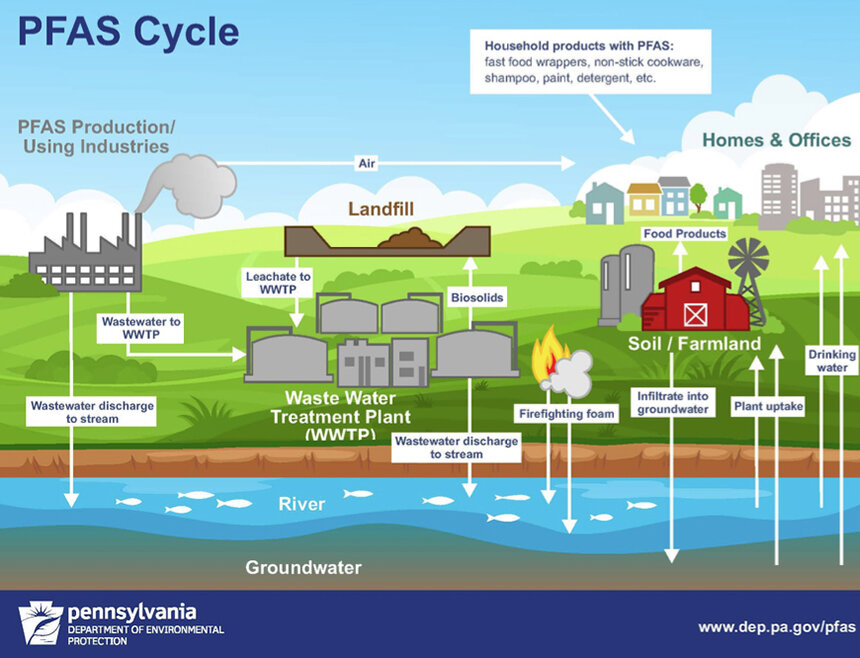Second Lawsuit Challenges New Shoreline Access Law
October 2, 2023
WAKEFIELD, R.I. — Just one week after a federal judge tossed out the first legal challenge to the state’s shoreline access law, a new lawsuit has been filed in Washington County Superior Court.
The lawsuit, filed on Sept. 25 by David and Linda Roth, who primarily reside in Connecticut and own two properties in Westerly, according to the complaint, charges that the state illegally seized private property without due compensation when it passed the shoreline access law in June. The complaint also claims the General Assembly exceeded its powers when it passed the law, arguing that the law as passed violates the separation-of-powers doctrine in the state constitution by attempting to overturn a state Supreme Court decision via the legislature.
The state Coastal Resources Management Council (CRMC) is the only state agency listed in the suit, along with the state of Rhode Island as a co-defendant.
“The Act seeks to overrule the Court’s decision in State v. Ibbison, and to amend the State Constitution by declaring through legislation that the public’s beach rights extend to a point located 10 feet inland of the [recognizable high tide line],” according to the complaint. “The Supreme Court’s determination regarding the reach of a constitutional provision cannot be overruled by legislation.”
The complaint concludes by asking the court to declare the shoreline access law unconstitutional, or to alternatively award the Roths “just compensation” for the taking of their private properties.
The Roths, who list their primary address as West Hartford, Connecticut, own a pair of abutting properties, worth a combined $26 million, along Niantic Avenue in Westerly. One is owned by David and Linda Roth outright, the other is owned by a limited liability company, ES720 LLC. The LLC is controlled by the Roths’ two children, according to the complaint.
Like the previous suit brought by the Rhode Island Association of Coastal Taxpayers (RIACT), a group of waterfront property owners, the Roths’ lawsuit questions the legality of the shoreline access law, claiming that the law seized the private beach owned by the family by changing the boundary for public access.
“The boundaries of each property encompass an upland area where residential buildings and other improvements are located,” the complaint says, “as well as dunes and a section of private beach that Plaintiffs used for personal and family enjoyment. Each property’s deed designates the Atlantic Ocean as the property’s southerly boundary.”
Brian Hodge, a spokesperson for Rhode Island Attorney General Peter Neronha, said the office is reviewing the complaint and would respond in court.
“The Attorney General remains grateful that the General Assembly codified Rhode Islanders’ constitutional right to shoreline access into state law,” said Hodge. “The office remains committed to protecting those rights against any legal challenge, as it successfully did in a recent challenge to the law brought in federal court.”
The shoreline access law passed by the General Assembly in June codified and greatly widened the public’s lateral access to the shore. After the law was signed, members of the public could walk 10 feet landward of the lowest seaweed line without trespassing on private property.
Prior to the new law, members of the public had to stay below the mean high water line (MHW), a nearly invisible boundary that was frequently underwater and only detectable with nearly 20 years’ worth of data. This boundary was chosen by the state Supreme Court case in its 1982 decision State v. Ibbison, but the decision caused more problems than it solved.
Putting the boundary at MHW was a problem for everyone, not just members of the public. Since the Ibbison decision, no waterfront property owner has successfully had someone prosecuted for trespassing; neither they nor law enforcement nor town officials nor the courts could agree where the line for public access ends and private property begins.
RIACT, the plaintiff in the first suit, sued the state, as well as the state Department of Environmental Management and CRMC in Rhode Island District Court. That complaint argued the new law was an illegal seizure of private property, and a Fifth Amendment violation because of the public easement it placed on all coastal land.
That lawsuit was dismissed in mid-September by Judge William Smith, who said that RIACT had sued the wrong defendants for the wrong reasons in the wrong court. Ultimately, Smith said, RIACT had no standing to sue, and even if the court granted the relief asked for in its complaint, it would not remedy the wrong outlined in the lawsuit.
Categories
Join the Discussion
View CommentsRecent Comments
Leave a Reply
Related Stories
Your support keeps our reporters on the environmental beat.
Reader support is at the core of our nonprofit news model. Together, we can keep the environment in the headlines.
We use cookies to improve your experience and deliver personalized content. View Cookie Settings




it still seems to me the ones doing the “taking” are these greedy (out of state!) adjacent property owners who want to take away our long time constitutional rights. Glad that Neronha is on it!
Yo well said.
Regardless of the property owner’s primary address or financial worth, their property deeds state that they own their property to the mean high tide line..period!
The state IS trying to take their rightfully owned property without just compensation, which is illegal in this country. The issue of illegal property seizure is not just for these property owners but rather for ALL RI coastal property owners. There are a lot of RI residents with very modest means who own property on the shoreline that are having their property illegally seized by this new law.
Does this really sound fair and reasonable to the commenters above who side with this law? If so, don’t complain when then the state tells you that everyone can camp out on your property someday…
I cant wait for the next storm to push the waterline inland. the owners of these homes do not own the beach, these greedy owners were mis-led by greedy real estate brokers. when the water moves, that is the new boundry of the atlantic ocean(as state in their deed) ;).
-power to the real full time taxpayers, part time citizens will only complain til labor day